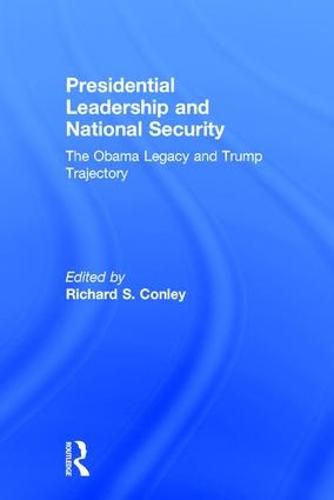Readings Newsletter
Become a Readings Member to make your shopping experience even easier.
Sign in or sign up for free!
You’re not far away from qualifying for FREE standard shipping within Australia
You’ve qualified for FREE standard shipping within Australia
The cart is loading…






This book assesses the foreign policy legacy of the Obama administration through the lens of national security and leadership. Timely, accessible chapters authored by leading scholars of presidential and international politics cover White House-Cabinet relations; Congress and War Powers; challenges including the Iran nuclear deal, ISIS, and the closing of Guantanamo Bay; drone strikes; the New Cold War with Russia; and the ways in which the Obama foreign policy legacy shaped the 2016 presidential election. In particular, the book explores the philosophical basis of counter-terrorism strategy in the Obama administration and traces how precepts differed from the administration of George W. Bush. More generally, the book contributes to an understanding of the distinctive interplay between the formal, constitutional powers of the president and the use of informal, executive powers in the quest for peace and security. Finally, the book surveys the challenges that Donald J. Trump faces in the transition to the new presidential administration.
$9.00 standard shipping within Australia
FREE standard shipping within Australia for orders over $100.00
Express & International shipping calculated at checkout
This book assesses the foreign policy legacy of the Obama administration through the lens of national security and leadership. Timely, accessible chapters authored by leading scholars of presidential and international politics cover White House-Cabinet relations; Congress and War Powers; challenges including the Iran nuclear deal, ISIS, and the closing of Guantanamo Bay; drone strikes; the New Cold War with Russia; and the ways in which the Obama foreign policy legacy shaped the 2016 presidential election. In particular, the book explores the philosophical basis of counter-terrorism strategy in the Obama administration and traces how precepts differed from the administration of George W. Bush. More generally, the book contributes to an understanding of the distinctive interplay between the formal, constitutional powers of the president and the use of informal, executive powers in the quest for peace and security. Finally, the book surveys the challenges that Donald J. Trump faces in the transition to the new presidential administration.